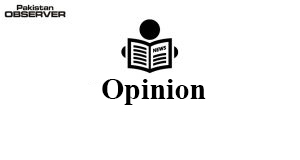Articles and letters may be edited for the purposes of clarity and space. They are published in good faith with a view to enlightening all the stakeholders. However, the contents of these writings may not necessarily match the views of the newspaper.
Petrol price escalation
While it is understandable that price of petrol and edible oil etc., is linked with what prevails in international market, it is the contradiction of low taxation on real estate profits and cigarette sales that does not conform to international practice, which is shocking. Even the IMF would have no objection to giving selective subsidies to the poor, if Pakistan raises enough revenues to meet expenditure.
There is no difference whether the government is dominated by PTI, PML-N, PPP, PML-Q etc., or a dictatorship, this Elite Capture is dominant and is reflected in every budget that has been passed for decades. The last balanced budget was presented by Khawaja Nazimuddin in 1953, but within days the GG dismissed his government, followed by dissolving the First Constituent Assembly and the judiciary complied using Doctrine of Necessity.
Pakistan has been subjected to various doctrines such as Ayub Doctrine, Zia Doctrine and Musharraf Doctrine, but has never adopted Jinnah Doctrine which was the basis for creation of a modern democratic welfare state. It is an internationally accepted practice to tax all sources of income and raise enough revenues to meet expenditure and invest in socio-economic development, instead of the elite capture where a few are exempted from taxes, enjoy subsidies and tax amnesty schemes and are biggest beneficiaries. Ever since the first IMF agreement in 1958, we have had deficit budgets.
We have borrowed from all international financial sources, even got involved in fighting proxy wars, but the billions received are not reflected in improving life of the poor and middle class. We are unique in the region and world at large, where the paid elite are beneficiaries of gross irregularities like multiple allotment of plots and agriculture land, which they are at liberty to sell for commercial profits, with minimal taxation.
Malik Tariq Ali
Lahore
Pak economic dilemma
It’s combined agenda of rulers and media to fool the people to perpetuate in power come what may? A student of economics can’t digest when our GDP has been shown growing and fiscal deficit ballooning due to extraordinary borrowing during last few years.
The IMF is not our masters; we have abandoned their programs midway in the past. A graduate in economics knows the requirements of annual budget: The basics are: (i) Natural resources. (ii) Food resources, (iii) Cash crop resources, (iv) Industrial productivity, (v) Power & energy resources, (vi) Logistic support, (vii) Climate to support the productivity and planning, Law & Order, Infrastructure maintenance and ensuring that our countrymen are at peace to participate into our national drive to sustain and grow with time. Economic planning and budgeting are all number game and one has to put the puzzle together to achieve the desired result.
ALI ASHRAF KHAN
Karachi
Fare exploitation
No doubt, gasoline costs have risen, putting a lot of strain on the average person and others. However, a 1% increase in gasoline costs results in a doubling or more than double increase in bus rates. From Islamabad to Sukkur, the rates were around 2600 rupees, but as gasoline prices rose, they rose to over 3200 rupees, implying that everyone was charged more than 20% of the fare.
This has been noted that the fare has only covered the inflation of petrol for 4 or 5 people in the bus, while the remaining seats have an undue profit and no one is concerned enough to take action. This is not unique to Islamabad and Sukkur, but is true throughout the country. Therefore, this should be taken into consideration, and authorities should take tangible action to ensure that fares are not exploited.
RASHID ALI
Larkana
Internship for inexperienced teachers
Most of the Pakistan Universities’ senior faculty is not tech-savvy and is unbeknown to modern tech-oriented teaching methods although they are well experienced in their specified field(s). On the other hand, our educationists and new teachers are tech savvy but inexperienced and callow for practical teaching.
Our senior faculty is highly experienced and loaded with myriads of unique teaching techniques but young teachers never get a chance to get the benefit of their hard way learned experiences. The only reason for this deprivation is a communication gap between our young and senior teachers.
The Ministry of Education should make internships for teachers mandatory. As inexperienced teachers happen to learn through trial and error and eventually play with the future of students. These inexperienced teachers tread on the future of a number of students to pave their way toward teaching skills that are highly unjust and selfish. We need to make internships mandatory for callow and new teachers to secure the future of our students.
This internship should be supervised by senior faculty in a way to reap dual benefits. The purpose of the internship should be to teach effective teaching strategies to young inexperienced teachers in collaboration with senior faculty at the same time to teach the incorporation of technology in the education setting to senior faculty in collaboration with young teachers.
This will definitely uplift our teaching field and can bring manifold results to our education sector as teaching is the basis of high-quality education. To improve the standard of our society, we need to upgrade our teaching field and we need to meet the gaps between technology literacy and the field experience of our teachers. The easy, effective and economic way of filling this gap is to make internships mandatory for inexperienced teachers. (PhD scholar)
SYEDA UZMA BUKHARI
Via email









